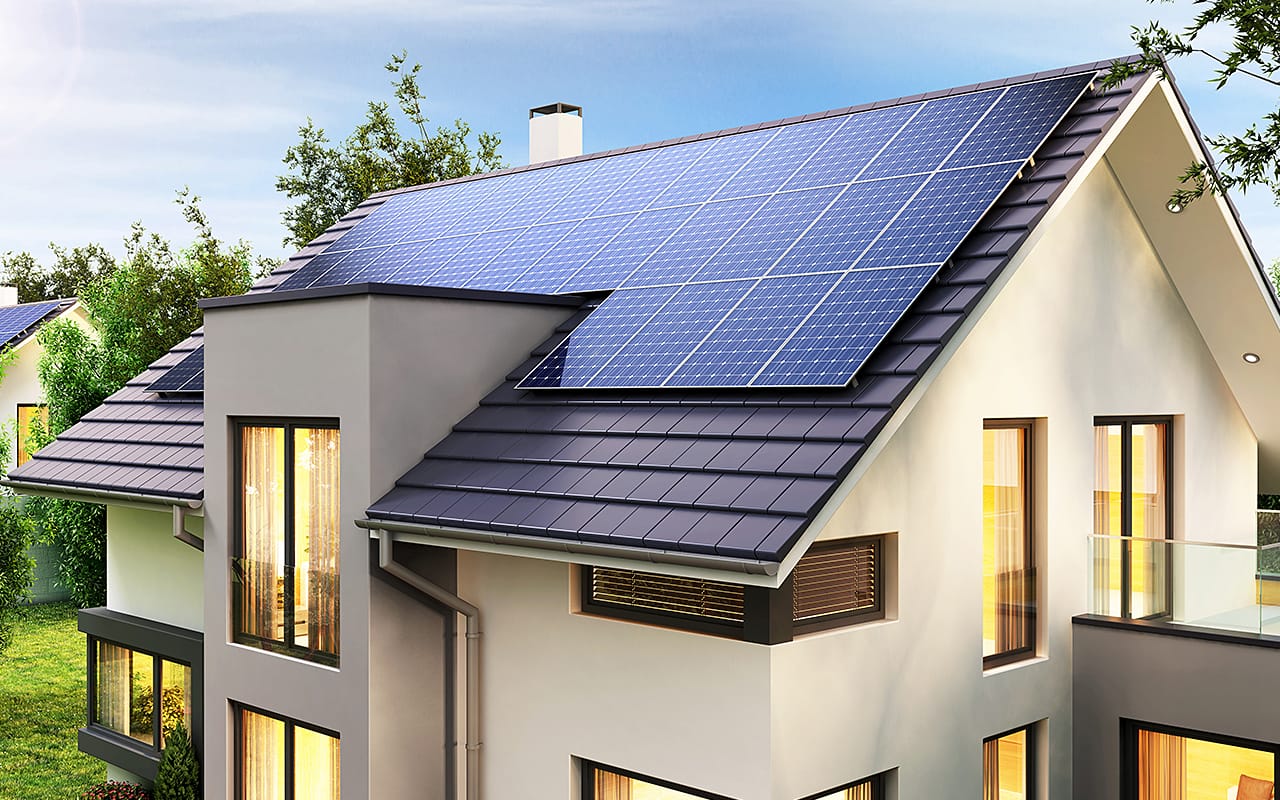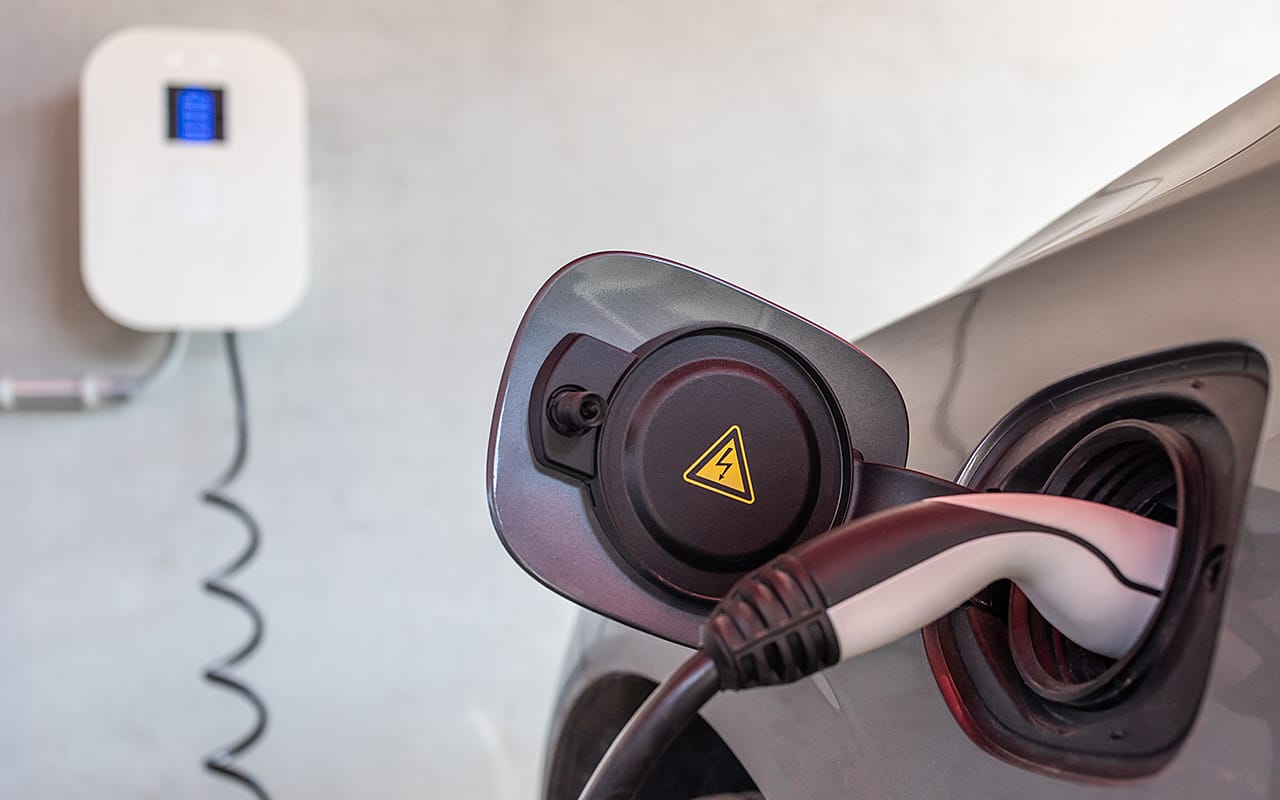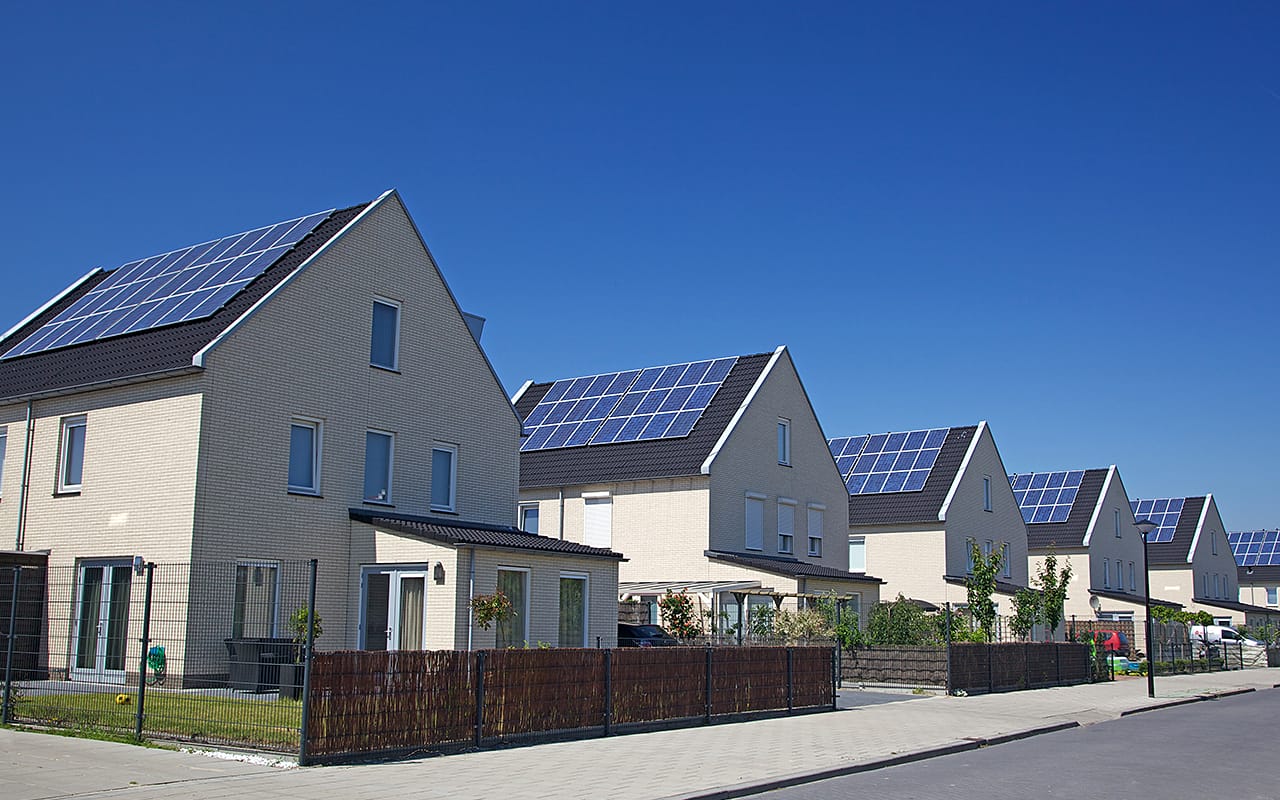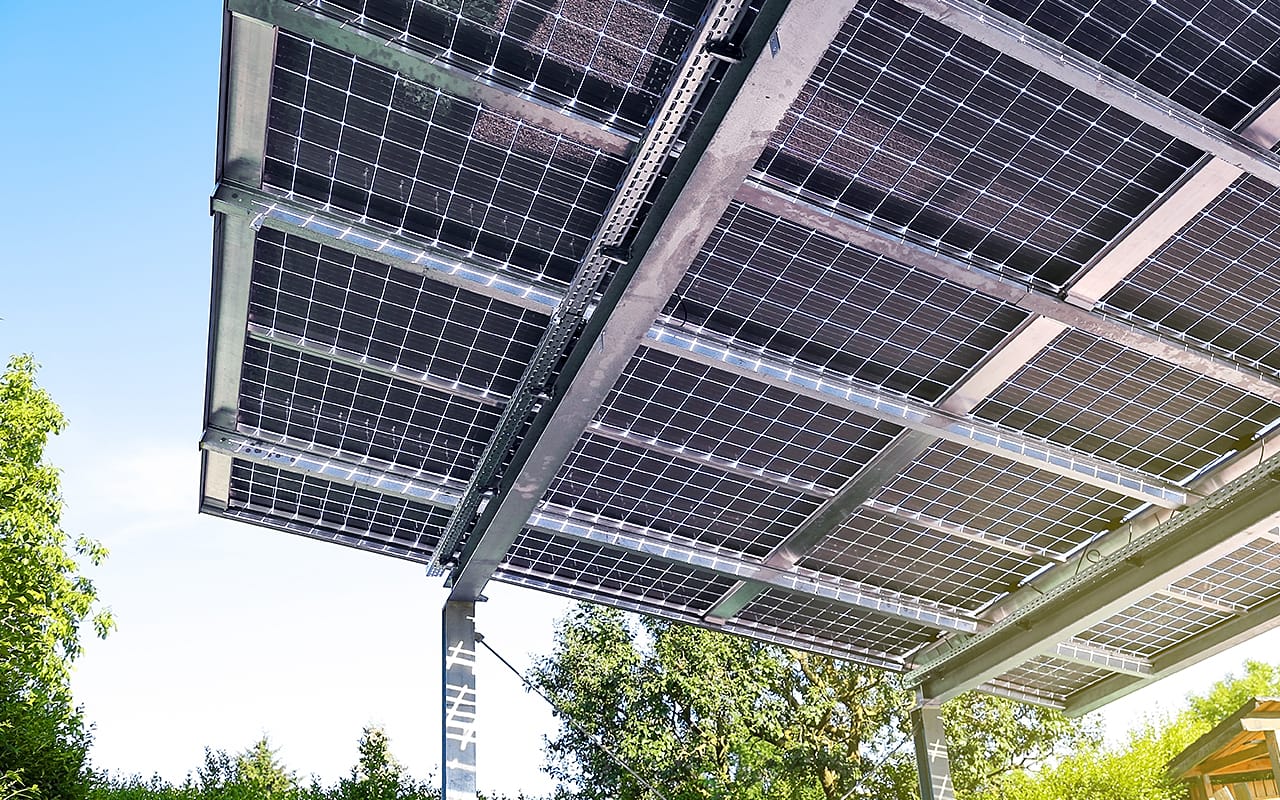Photovoltaic self-consumption - that's why it pays to generate your own electricity!

Photovoltaics for self-consumption helps you to reduce electricity costs. Although PV systems are often criticised, they generate energy where you actually use it. As a result, you can not only reduce electricity costs, but also relieve the burden on the electricity grid. The more energy from solar power is used, the better it affects the public grid. The grid electricity that is transported here is no longer needed, which contributes to this active relief.
How does self-consumption of solar power work?
Those who cover their own consumption with photovoltaics are able to generate their own electricity and reduce their electricity costs. The photovoltaic modules for self-consumption generate direct current, which is then converted into alternating current by an inverter. This is fed into the household grid and used in this way by the electrical appliances. This makes photovoltaics for self-consumption an optimal solution model with which you can reduce your electricity costs.
As soon as you generate more electricity yourself than the electronic devices consume, it flows into the public grid. In this case, the operators of the PV system receive remuneration in accordance with the new EEG (Renewable Energy Sources Act). The monthly adjusted amount depends on the output and is currently around eleven cents per kilowatt hour. This makes your photovoltaics interesting not only for self-consumption - you reduce electricity costs and relieve the burden on the electricity grid.
Using solar energy reduces electricity costs
Would you like to generate your own electricity for self-consumption using photovoltaics? If you connected your system between 2009 and 2012, you will receive additional money according to the EEG for photovoltaic self-consumption of solar electricity.
One disadvantage of photovoltaics from this period is that low efficiency does not always cover your own consumption. If this is the case for you, you draw the missing amount from the normal grid. The energy supplier will charge you the amount due. Depending on the type of PV system, it is currently around five to eight cents per kilowatt hour. You can reduce your electricity costs by combining self-generated and purchased electricity. The requirement for combined consumption is a special electricity meter - this combines a feed-in meter and a PV meter. This makes photovoltaics for self-consumption an attractive option with which you can consistently reduce electricity costs.
Degree of self-sufficiency, self-consumption or feed-in - what does that mean?
When it comes to photovoltaics for self-consumption, questions repeatedly arise about the terms degree of self-sufficiency, self-consumption and feed-in. What do they mean and what is there to know about them?
Own consumption
Photovoltaic self-consumption refers to the electricity generated by the PV system. If you generate the electricity yourself, the system transmits it directly to the house. There you use it for your electronic devices to reduce your electricity costs. If necessary, you supplement the electricity you generate yourself with electricity from the public grid.
Feed-in
If you generate electricity in a quantity that exceeds your own photovoltaic consumption, it is fed into the grid. You receive remuneration for this electricity, which the grid operator pays out depending on the respective rates. At the same time, the kilowatt hour costs you less, which helps you to reduce your electricity costs.
Autarky
Autarky is a synonym for photovoltaic self-consumption. The term stands for independence, as you use the electricity from self-supply independently of the public electricity suppliers. If your house is self-sufficient, it means that you generate your own electricity.
Advantages of self-consumption - why is a PV system worthwhile?
Photovoltaics for self-consumption helps you to effectively reduce your electricity costs. Once you generate your own energy, you enjoy various advantages:
- Small PV systems are exempt from the EEG levy as long as you operate the photovoltaic system for your own consumption. As soon as you generate electricity yourself, you are an electricity producer and consumer in one.
- You can reduce your electricity costs by using the solar electricity you generate yourself for your appliances. If you need additional electricity from the general grid, you pay less per kilowatt hour consumed.
- You are more independent of the large energy companies. As a result, changes in electricity prices affect you less.
- This type of energy is sustainable - a good reason to switch to photovoltaic self-consumption.
→ How to calculate your own demand for your PV system
Technological development behind the PV plant
Self-consumption photovoltaics allow you to reduce your electricity costs by generating your own energy. In the meantime, companies offer intelligent solutions with which you can use the generated electricity. The energy generated provides active support for the electricity grid. Modern storage technologies and intelligent energy managers improve the process of energy generation.
For you as an end user, this means that you do not lose any comfort. You can use electricity from both grids without any problems and without noticing the switchover. In the course of the energy transition, you reduce your electricity costs and sell surplus electricity. You feed the electricity from your PV system into the grid or via a peer-to-peer model. There are many more options in this area in the near future.
Producing your own solar power helps to protect the environment. Unlike fossil fuels, solar power is a clean, renewable energy. Solar energy is available in unlimited quantities. According to the Federal Ministry for the Environment, photovoltaics helped to reduce CO2 emissions by more than 20 percent in 2009. In 2014, its contribution to gross electricity consumption rose to 5.7 percent. Environmentally friendly and inexhaustible at the same time - this makes self-generated energy the right way to generate energy for the future.
About the author
TRITEC has specialised in the generation of solar power through photovoltaics for over 34 years. We are active worldwide in both photovoltaic wholesale and large-scale plant construction. In addition to our proven PV mounting system, we also offer our own intelligent system solutions for the planning, design and performance control of photovoltaic systems, as well as branded products from leading photovoltaic manufacturers.




